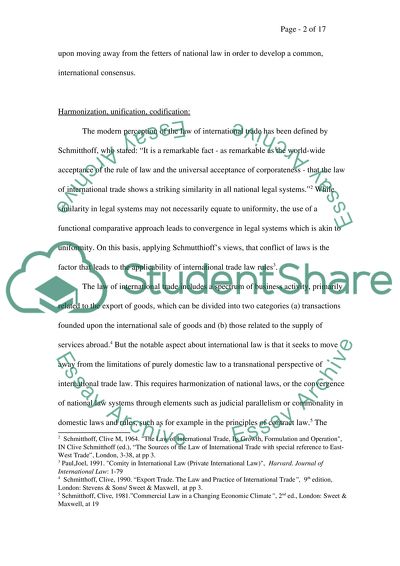Cite this document
(“How comprehensive and effective is the legal regime for international Essay”, n.d.)
How comprehensive and effective is the legal regime for international Essay. Retrieved from https://studentshare.org/miscellaneous/1548417-how-comprehensive-and-effective-is-the-legal-regime-for-international-sales-today-is-there-any-further-need-for-harmonisation-in-this-area-of-law
How comprehensive and effective is the legal regime for international Essay. Retrieved from https://studentshare.org/miscellaneous/1548417-how-comprehensive-and-effective-is-the-legal-regime-for-international-sales-today-is-there-any-further-need-for-harmonisation-in-this-area-of-law
(How Comprehensive and Effective Is the Legal Regime for International Essay)
How Comprehensive and Effective Is the Legal Regime for International Essay. https://studentshare.org/miscellaneous/1548417-how-comprehensive-and-effective-is-the-legal-regime-for-international-sales-today-is-there-any-further-need-for-harmonisation-in-this-area-of-law.
How Comprehensive and Effective Is the Legal Regime for International Essay. https://studentshare.org/miscellaneous/1548417-how-comprehensive-and-effective-is-the-legal-regime-for-international-sales-today-is-there-any-further-need-for-harmonisation-in-this-area-of-law.
“How Comprehensive and Effective Is the Legal Regime for International Essay”, n.d. https://studentshare.org/miscellaneous/1548417-how-comprehensive-and-effective-is-the-legal-regime-for-international-sales-today-is-there-any-further-need-for-harmonisation-in-this-area-of-law.


